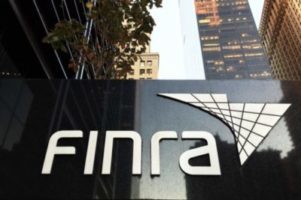
Buckman Buckman Reid Inc. a securities broker dealer headquartered in Little Silver New Jersey has been censured by Financial Industry Regulatory Authority (FINRA) based upon findings that (1) Buckman Buckman Reid Inc. neglected to create and implement a supervision system and written supervisory procedures regarding the suitability of trades recommended by stockbrokers of the firm and (2) the firm particularly failed to supervise a stockbroker who made unsuitable unit investment trust recommendations for a customer causing the customer to incur investment losses. Letter of Acceptance Waiver and Consent No. 2018058266301 (Apr. 25, 2019).
According to the AWC, between January of 2013 and April of 2017, there were no supervision systems that the firm created and implemented to ensure that it complied with FINRA’s suitability requirements. Apparently, the firm failed to ensure its trading practices were adequately supervised to protect against customers’ accounts being overconcentrated and being subject of excessive trading by the stockbrokers of the firm.
The AWC stated that the firm designated its senior vice president and part owner, Harry John Buckman Jr., as the person responsible for making sure that stockbrokers’ recommendations were suitable. Yet, Harry John Buckman failed to undertake any reviews of the stockbrokers’ transactions for suitability. Rather, he depended on compliance personnel to evaluate suitability. FINRA noted that there was no written procedures or other documentation delegating Harry John Buckman’s supervisory responsibilities concerning suitability to compliance personnel.
Additionally, the AWC stated that there were no written supervisory procedures which dictated who in the firm was responsible for reviewing red flags on transactions. Evidently, the firm’s alerts and exception reports had not been reviewed prior to 2017 despite the firm receiving automated alerts and exception reports meant for purposes of detecting accounts overconcentrated in investments or accounts subject of excessive trading.
The AWC stated that the firm had the ability to review exception reports to identify high commissions and turnover rates. This would have reportedly alerted the firm to the stockbrokers’ suspect trading practices; however, the supervisory procedures utilized by the firm did not reference the use of those reports or otherwise address how the reports could be utilized. FINRA also claimed that the firm was provided warnings about customers’ accounts containing unsuitable concentrations in securities; however, no guidance was provided on what to do with the alerts.
The AWC stated that Harry John Buckman Jr. failed to undertake any review of exception reports and suitability reviews despite the written supervisory procedures mandating this responsibility. Further, the AWC stated that no one at the firm took steps to review suitability of transactions or the exception reports in his place.
The AWC further revealed that the firm utilized an Active Account Report, prepared by an administrative assistant, to identify if customers’ investments were traded excessively by stockbrokers. Evidently, this Report was deficient because it failed to take into account the costs or commissions in terms of the equity held in the customers’ accounts. The Report was also not capable of showing patterns of unsuitable trading by stockbrokers because of the limited scope of the Report. Consequently, FINRA stated that the firm’s conduct was violative of FINRA Rules 2010, 3110 and National Association of Securities Dealers (NASD) Rule 3010.
According to the AWC, the firm also neglected to supervise a stockbroker, Glenn King, who executed unsuitable transactions in customer accounts. Apparently, Harry John Buckman Jr. was responsible for supervising Glenn King. At the time of Glenn King’s hire, Glenn King had been placed on heightened supervision because of him being referenced in multiple customer initiated investment related complaints concerning Glenn King’s bad unit investment trust advice.
Glenn King was not adequately supervised by the firm and Harry John Buckman Jr. Consequently, in the case of four customers’ retirement accounts, Glenn King advised customers to effect unit investment trust trades on a short-term and frequent basis. According to FINRA, those investments were meant to be held by investors for longer periods because they contained large upfront costs.
In one case, customers RA and LA had been advised by Glenn King to trade unit investment trusts on a frequent basis despite these customers’ objectives of investing in a balanced and conservative growth portfolio. Evidently, the customers’ held the investments for sixty-nine days on average. Consequently, RA and LA had an annual cost-to-equity ratio exceeding sixteen percent. In another case, Glenn King advised customers to frequently trade unit investment trust products seventeen times, which caused the customers to liquidate positions after about fifty-three days on average. Their account contained a cost-to-equity ratio of twenty-one percent.
The AWC stated that the firm was alerted over and over again as to Glenn King’s problematic trading. Critically, sixty-five exceptions were noted in the firm’s excessive trading report concerning his trading in customers’ accounts. And the four customers’ accounts were noted within the Active Account Report, which the firm was supposed to have utilized for uncovering excessive trading incidents. However, none of the customers were contacted by Harry John Buckman Jr. regarding their accounts. As a result, customers’ incurred losses totaling $163,000 from Glenn King’s excessive trading even though they were required to pay commissions totaling $210,000. FINRA found the firm and Harry John Buckman Jr.’s conduct violative of FINRA Rules 2010 and 3110.
Furthermore, FINRA noted that the firm failed to supervise RI, who effected at least one hundred thirty trades in an eighty-nine-year-old customer’s accounts, causing the customer to maintain a turnover rate exceeding six and a cost-to-equity ratio exceeding thirty-two percent. That customer was one of three whose accounts had been exposed to unsuitable and excessive trades by RI. As was the case with Glenn King, RI’s trading sounded alarms within the firm’s exception reports which were not reviewed by any supervisory personnel. Apparently, the customers’ accounts were noted within exception reports concerning high commissions and excessive trading, and had also been listed on the firm’s Active Account Report. RI’s trading privileges were unaffected throughout this time because the firm did not take appropriate action. Those customers ultimately lost $290,238.00 while having to pay $173,476.00 in commissions.
RI also reportedly advised at least four customers to concentrate their investment portfolio in a speculative security issued by a biotech company. In one case, a customer was advised by RI to put the entirety of the customer’s investable assets in the biotech company. FINRA found that it was not suitable for RI to have advised customers in this manner, and the firm did nothing to assess the suitability of customers’ concentrated positions. Those customers reportedly incurred $32,078 in losses because of maintaining unsuitable concentrations. FINRA found the firm and Harry John Buckman Jr.’s conduct in this regard to be violative of FINRA Rules 2010 and 3110.







